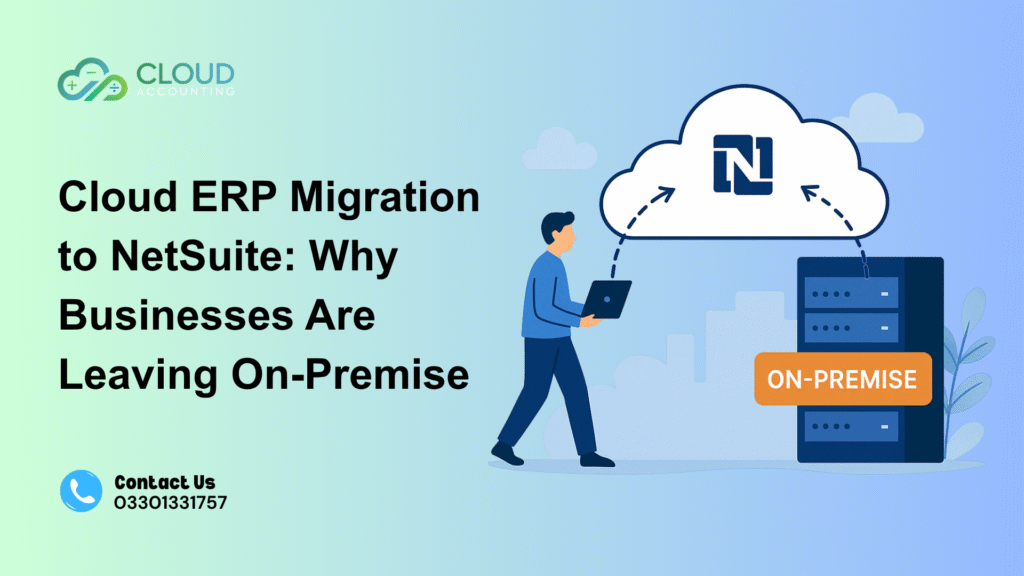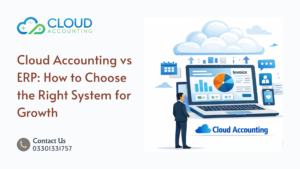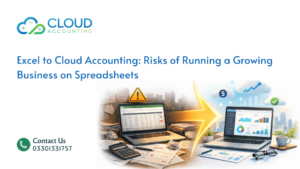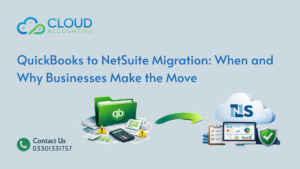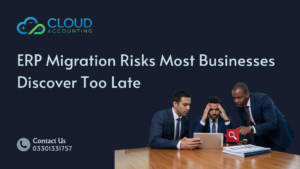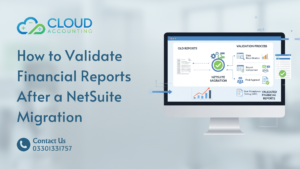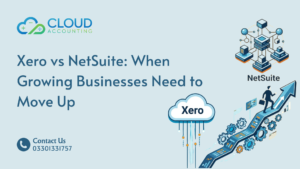For years, businesses relied on heavy, inflexible on-premise ERP systems. However, these legacy tools often require expensive servers, constant IT maintenance, and provide little flexibility. In today’s fast-moving world, such limitations are no longer acceptable. That’s exactly why so many companies are choosing Cloud ERP Migration to NetSuite — a modern, scalable platform that empowers growth and efficiency.
Cloud ERP vs On-Premise ERP: The Big Dilemma
For decades, businesses considered on-premise ERP the backbone of their operations. Companies invested heavily in physical servers, IT staff, and costly upgrades just to keep their systems running. But in today’s digital-first world, those limitations are becoming painfully clear.
When evaluating on-premise ERP vs cloud ERP, the differences stand out immediately:
- On-Premise ERP:
- Requires physical servers and data centers that demand ongoing maintenance.
- Involves large upfront licensing fees and recurring upgrade costs.
- Updates are manual, often leading to outdated versions.
- Access is limited to office networks, which restricts remote work.
- Scaling up means purchasing new hardware and reconfiguring systems.
- Requires physical servers and data centers that demand ongoing maintenance.
- Cloud ERP:
- Fully hosted online with no hardware investment needed.
- Uses a subscription model, making costs predictable.
- Receives automatic updates, ensuring businesses always run the latest version.
- Accessible from anywhere with an internet connection, perfect for hybrid and global teams.
- Easily scales up or down as business needs change.
- Fully hosted online with no hardware investment needed.
In 2025, the contrast between these two models is sharper than ever. While legacy ERP creates heavy operational burdens, Cloud ERP Migration to NetSuite eliminates those pain points by offering:
- Agility to adapt quickly to new market demands.
- Cost savings by removing IT infrastructure expenses.
- Innovation through built-in AI, real-time reporting, and automated workflows.
This is why more organizations are making the shift from outdated on-premise systems to a flexible cloud solution. For growing businesses, Cloud ERP Migration to NetSuite isn’t just a technology upgrade it’s a competitive advantage.
The Top Benefits of Cloud ERP Migration to NetSuite
Businesses don’t switch just for technology’s sake. They do it for tangible results. Here are the biggest ERP cloud migration benefits when moving to NetSuite:
- Lower IT Costs: No more server maintenance or expensive upgrades.
- Scalability: Add modules and users as your business grows.
- Global Access: Manage operations anywhere, anytime.
- Built-in Compliance: Stay audit-ready with real-time controls.
- Automation: Replace manual processes with smart workflows.
These advantages explain why Cloud ERP Migration to NetSuite is a game-changer. In fact, most SMEs and fast-growing companies report faster decision-making and reduced operating costs after switching.
Common Challenges in Cloud ERP Migration to NetSuite
Every major system upgrade has its challenges. The good news is that with the right partner, you can manage them all effectively.
Businesses often face:
- Data migration issues: Cleaning and validating large volumes of legacy data.
- Customization gaps: Replicating unique workflows in the cloud.
- User adoption: Training staff on new processes.
While these challenges exist, they don’t outweigh the benefits. With expert guidance, Cloud ERP Migration to NetSuite is smooth and reliable. That’s why many businesses partner with professionals for their NetSuite migration journey.
Step-by-Step ERP Migration Journey to NetSuite
A successful transition from on-premise ERP to the cloud requires careful planning, structured execution, and post-migration support. Here’s the proven roadmap most businesses follow when embarking on Cloud ERP Migration to NetSuite:
- Assessment & Strategy
- Begin with a full review of your current ERP setup, processes, and data volumes.
- Identify pain points in reporting, scalability, and compliance.
- This stage answers critical questions like: Which modules need to move first? What integrations must be preserved?
- Begin with a full review of your current ERP setup, processes, and data volumes.
- Data Audit & Cleansing
- Legacy systems often contain duplicate, outdated, or incomplete data.
- A thorough data audit ensures only accurate and relevant information is migrated.
- Cleaning up customer records, supplier details, financial transactions, and historical reports reduces errors later on.
- Legacy systems often contain duplicate, outdated, or incomplete data.
- Data Mapping & Configuration
- Financial, operational, and transactional data must be mapped to the right fields within NetSuite.
- Chart of accounts, tax codes, product catalogs, and reporting structures are aligned to NetSuite’s framework.
- Configurations are also made for role permissions, workflows, and security.
- Financial, operational, and transactional data must be mapped to the right fields within NetSuite.
- Testing & Validation
- Test migrations are run to validate data accuracy and system performance.
- Financial reports, reconciliations, and transactional records are cross-checked.
- Integrations with other tools (CRM, ecommerce platforms, payroll) are tested to ensure smooth operation.
- Test migrations are run to validate data accuracy and system performance.
- Training & Change Management
- Technology is only effective when people adopt it.
- Staff training sessions introduce teams to NetSuite’s dashboards, reports, and workflows.
- Role-based training ensures finance, sales, and operations teams use the system effectively from day one.
- Technology is only effective when people adopt it.
- Go-Live & Support
- The system is switched on with confidence once all validation checks are complete.
- Post-migration support includes monitoring, troubleshooting, and optimization.
- Continuous guidance ensures the system is fine-tuned as the business scales.
- The system is switched on with confidence once all validation checks are complete.
By following these steps, Cloud ERP Migration to NetSuite shifts from a risky IT project into a controlled, low-risk transformation. Businesses not only move their data but also modernize their processes, gaining a platform that grows with them.
Why NetSuite Wins Over On-Premise ERP
On-premise ERP once served businesses well, but times have changed. NetSuite delivers advantages legacy systems can’t match:
- Subscription pricing saves capital for growth.
- Seamless integrations with CRM, eCommerce, and BI tools.
- Advanced analytics that improve strategic decisions.
- Scalability to support both SMEs and global enterprises.
For these reasons, NetSuite for growing businesses is the clear choice. Companies making the leap to Cloud ERP Migration to NetSuite consistently find it drives both efficiency and profitability.
Real-World Scenarios: When Businesses Should Choose NetSuite
Certain types of companies benefit the most from moving:
- SMEs tired of costly IT overhead.
- Ecommerce brands needing real-time inventory management.
- Global firms dealing with multi-currency reporting.
If you’re wondering why migrate ERP to NetSuite, the answer lies in flexibility. For businesses expanding rapidly, Cloud ERP Migration to NetSuite ensures they don’t outgrow their systems.
Partnering With Experts for Smooth Migration
DIY migrations often lead to errors, delays, and staff frustration. Partnering with a trusted migration specialist makes all the difference. At Cloud Accounting, we help businesses simplify Cloud ERP Migration to NetSuite through proven strategies, accurate data handling, and hands-on training. With expert support, Cloud ERP Migration to NetSuite becomes faster, safer, and future-proof.
Conclusion: A Strategic Move for Growth
In 2025, businesses that want to grow can’t afford to stay locked into outdated systems. On-premise ERP may have worked in the past, but it now slows down agility, drains IT budgets, and creates barriers to global expansion. By choosing Cloud ERP Migration to NetSuite, organisations position themselves for long-term success with a system that evolves alongside their growth.
The advantages go beyond technology. Businesses that migrate see:
- Stronger decision-making with real-time data and advanced reporting.
- Greater efficiency as you automate manual processes
- Improved compliance with built-in audit trails and security updates.
- Global readiness thanks to multi-currency and multi-subsidiary capabilities.
Whether you’re an SME looking for cost control, or an enterprise expanding into new markets, Cloud ERP Migration to NetSuite provides the scalability and resilience of today’s economy demands. The shift to cloud ERP is no longer a question of if — but when.
At Cloud Accounting, we’ve guided dozens of businesses through this journey. Our proven framework migrates your data accurately, optimises your workflows, and supports your team at every step.
Ready to explore your migration options? Contact Cloud Accounting today and let our experts design a tailored roadmap for your move to NetSuite.

